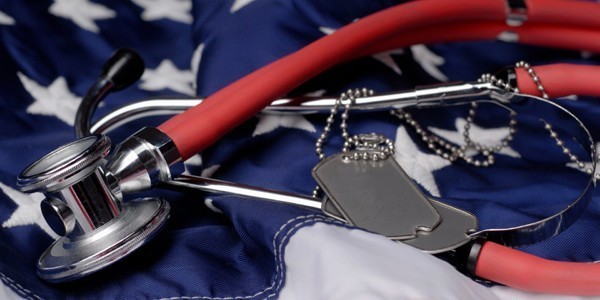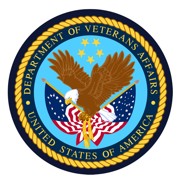Veterans have a significantly higher suicide rate than other adults in the U.S. This means Veterans are also more likely to have known someone who took their own life. Uniting for Suicide Postvention (USPV) helps make sense of a suicide loss. The program connects survivors with resources to help them work through powerful and unique emotions specific to this type of grief.
Compared with many other kinds of loss, suicide can be particularly challenging for survivors. Specifically, they must wrestle with the difficult moral, societal and religious implications.
Shock at the suddenness of the death may compound their grief. Or they may feel a mix of shame, anger, guilt and, sometimes, relief.
Some survivors blame themselves for not noticing warning signs, even though such signs may not have been obvious. And the effects extend beyond close family members. Even first responders, who never personally knew the deceased person, can be affected emotionally by the suicide scene.
USPV provides postvention information and resources to assist survivors as they navigate their healing journey, both immediately after the loss and in the months and years that follow.
What is postvention, and who benefits from it?
Suicide prevention aims to avert incident, while postvention fosters healing afterward, for those touched by the loss. With tens of thousands of suicides every year in the U.S., coping with the aftermath is an unfortunate reality for more people than some might think. For every suicide, an estimated average of 135 people are affected.
 Long Description
Long DescriptionThe USPV team is, from left: Laurel Gaeddert, program support specialist; Army Veteran Richard McMullen, webmaster; Sarra Nazem, Ph.D., USPV director; and previous program support specialist Christine Pao, M.Ed.
Beyond the immediate circle of grieving family members and friends, those who regularly interacted with the person who died also can be affected. This includes coworkers, doctors, neighbors, bus drivers or a regular waitress at a favorite restaurant.
Quality postvention can facilitate survivors’ healing. It helps them understand and address the complex thoughts and emotions that make coping after a suicide loss particularly challenging. USPV offers a safe space where loss survivors can explore painful and challenging emotions. It strives to create a community of shared healing by improving education about postvention and access to support and resources.
VA’s Office of Mental Health and Suicide Prevention supports USPV. However, most USPV resources support anyone who has been touched by suicide loss regardless of their military, Veteran or military family status.
At the heart of USPV is a website that features multimedia resources designed to promote open dialogue. The site is structured to meet the needs of community members, health care providers and workplace colleagues. It offers videos, infographics and podcasts related to connecting and healing.
How is suicide postvention part of prevention?
Experts consider exposure to suicide a risk factor for suicide. Survivors are at greater risk for substance use disorders and mental health issues than those who haven’t experienced such a loss. This includes including thoughts of suicide. Those exposed to suicide in the workplace are 3.5 times more likely than others to take their own lives. In a military unit with five or more suicide attempts in a year, the risk for another attempt is double that of units that had no attempts.
Grief after loss can be so intense that it prevents survivors from seeking help at a critical crossroad. But by helping survivors heal after a suicide, postvention reduces the risk of additional suicides in the deceased person’s circle. In that way, postvention healing is a vital component of prevention. Postvention is so important that the Rocky Mountain Mental Illness Research, Education and Clinical Center (MIRECC) has established USPV as part of VA’s mission to develop, disseminate and implement a comprehensive prevention program.
To learn more about USPV at the Rocky Mountain MIRECC, visit https://www.mirecc.va.gov/visn19/postvention/.
Resources
If you know someone grieving after a suicide loss, you may wish to read about ways you can help and talk to them. To learn about mental health support for Veterans, visit mentalhealth.va.gov.
- If you or someone you know is in crisis, don’t hesitate to get help.
- Call 9-1-1 immediately.
- Contact the Veterans Crisis Line, which connects service members and Veterans in crisis, as well as their family members and friends, with qualified, caring VA responders. Call 1-800-273-8255 and press 1, text to 838255, or chat online at net/Chat.
- Call the National Suicide Prevention Lifeline at 1-800-273-TALK (8255) or text TALK to 741741.
- The Tragedy Assistance Program for Survivors (TAPS) provides free, compassionate care and survivor support services for the families of America’s fallen military heroes. Services include peer-based emotional support, grief and trauma resources, grief seminars and retreats for adults, Good Grief Camps for children, casework assistance, connections to community-based care, online and in-person support groups and a 24/7 resource and information helpline for all who have been profoundly affected by the death of a military loved one. For more information, visit taps.org or call the toll-free information helpline at 1-800-959-TAPS (8277).
- See related story, Postvention is key to suicide prevention says surviving spouse, advocate
Sarra Nazem holds a doctorate and is a clinical research psychologist at the Rocky Mountain MIRECC. She serves as a consultant for the Suicide Risk Management Consultation Program and delivers evidence-based treatment for Veterans.
Laurel Gaeddert provides administrative support for USPV and has assisted in the development of USPV resources. She earned a bachelor’s in psychology, with a minor in biology and a concentration in cognitive neuroscience, from the University of Denver.


